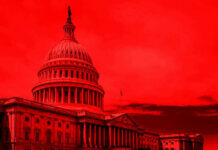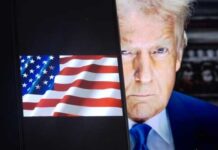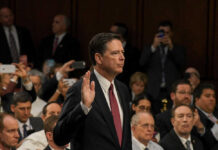
President Trump’s threat to strip Boston of World Cup games exposes the ongoing battle between political power plays and the autonomy of international sporting organizations, leaving constitutional conservatives alert to federal overreach and the politicization of American events.
Watch the video below.
Story Snapshot
- President Trump publicly threatens to remove Boston as a 2026 World Cup host city, citing opposition from local officials.
- FIFA alone controls host city selection, making Trump’s threat largely symbolic and not actionable.
- Boston and Massachusetts leaders condemn the rhetoric, reaffirming the city’s commitment to hosting and the economic benefits it is expected to bring.
- The episode highlights the limits of presidential power over international events and the need to protect local interests from outside political interference.
Trump’s Threats and the Battle for Boston’s World Cup Games
President Trump declared that Boston could lose its status as a host city for the 2026 FIFA World Cup if local officials did not “get their act together.” The statement came amid deepening tensions between the Trump administration and Massachusetts leaders, who have repeatedly clashed with the president over immigration, policing, and progressive policies.
Trump’s remarks immediately ignited widespread debate, raising concerns among residents and business owners about the fate of this highly anticipated global event. The threat follows a series of executive orders aimed at curtailing leftist agendas and reasserting federal authority, fueling frustration among conservatives who feel local opposition often undermines national interests.
Despite Trump’s strong rhetoric, the reality is clear: FIFA, the international governing body for soccer, maintains complete authority over the selection of World Cup host cities.
The process is rigorous, involving detailed evaluations of infrastructure, security, and local support. Boston secured its place as a host city after a competitive bid and thorough review by FIFA and the US Soccer Federation.
Neither the White House nor local politicians can override FIFA’s decisions, barring extraordinary circumstances such as major breaches of contract or catastrophic failures in preparation. This fact was swiftly reinforced by official statements from FIFA and US Soccer, both reiterating Boston’s confirmed status and the integrity of the selection process.
Political Power Plays Versus Sporting Autonomy
The clash over Boston’s World Cup hosting rights underscores a broader trend of increasing political intervention in sports. Previous attempts by domestic leaders to sway international event decisions—whether the Olympics or the World Cup—have consistently been rebuffed by global organizations determined to preserve their independence.
Trump’s threat, while echoing his campaign promises to “put America first” and resist progressive local agendas, ultimately reveals the limits of presidential influence on international sporting governance.
Sports law experts and political analysts agree: while Trump’s rhetoric may rally his base and stir up local political debate, it has little bearing on FIFA’s final decisions.
The episode serves as a reminder that American cities, even under conservative federal leadership, remain subject to international rules when it comes to global events.
Boston’s officials, led by the mayor and governor, responded promptly and assertively. Their joint statement condemned Trump’s remarks as “divisive and unfounded,” emphasizing the city’s pride and readiness to host the World Cup.
Local preparations continue as planned, with investments pouring into infrastructure, hospitality, and security. For Boston’s business community, the tournament represents a unique economic windfall, expected to generate hundreds of millions in tourism and international exposure.
Civic pride runs high among residents, many of whom view the event as a chance to showcase the city’s resilience and global standing despite ongoing political friction. The reassurance from FIFA and local leaders has helped calm anxieties, at least for now, and reaffirmed the value of keeping major sporting decisions free from domestic political battles.
Constitutional Concerns and the Conservative Perspective
For constitutional conservatives, Trump’s threat raises critical questions about the proper boundaries between federal power and local autonomy. The incident highlights the ongoing struggle against what many view as government overreach and the “politicization” of American institutions—including sports.
While Trump’s administration has delivered on key promises—protecting the border, rolling back woke policies, and restoring traditional values—the World Cup episode reminds us that not every battle can be won through executive action alone.
The independence of organizations like FIFA serves as a check against federal meddling, reinforcing the importance of limited government and respect for established processes.
As Boston moves forward with its World Cup plans, conservatives will continue to monitor such issues, ensuring that constitutional protections and common sense prevail over political posturing.
Looking ahead, experts warn that political attempts to influence international events may become more frequent as leaders seek new avenues to assert control and rally their supporters.
The Boston World Cup controversy could set a precedent for future interactions between American cities, the federal government, and global organizations.
For now, however, FIFA’s autonomy remains intact, and Boston’s hosting status is secure. The incident serves as both a cautionary tale and a testament to the enduring principles of fair play, limited government, and local pride that define American conservative values.















